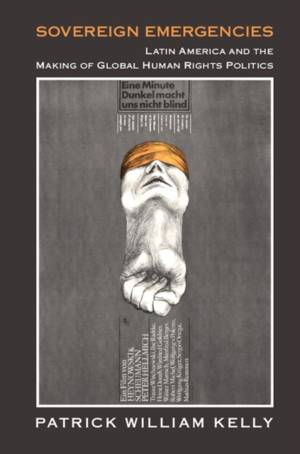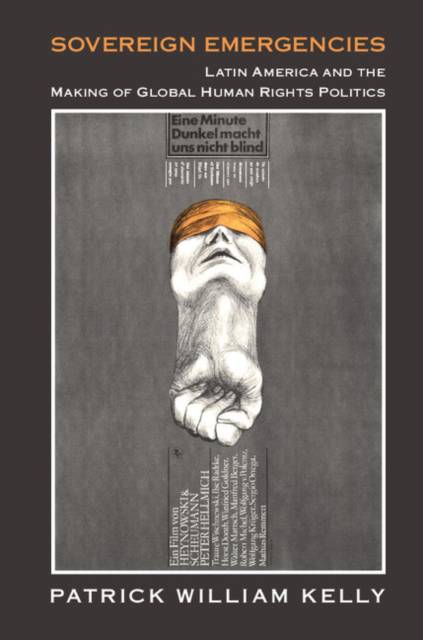
Je cadeautjes zeker op tijd in huis hebben voor de feestdagen? Kom langs in onze winkels en vind het perfecte geschenk!
- Afhalen na 1 uur in een winkel met voorraad
- Gratis thuislevering in België vanaf € 30
- Ruim aanbod met 7 miljoen producten
Je cadeautjes zeker op tijd in huis hebben voor de feestdagen? Kom langs in onze winkels en vind het perfecte geschenk!
- Afhalen na 1 uur in een winkel met voorraad
- Gratis thuislevering in België vanaf € 30
- Ruim aanbod met 7 miljoen producten
Zoeken
Sovereign Emergencies
Latin America and the Making of Global Human Rights Politics
Patrick William Kelly
€ 51,95
+ 103 punten
Omschrijving
The concern over rising state violence, above all in Latin America, triggered an unprecedented turn to a global politics of human rights in the 1970s. Patrick William Kelly argues that Latin America played the most pivotal role in these sweeping changes, for it was both the target of human rights advocacy and the site of a series of significant developments for regional and global human rights politics. Drawing on case studies of Brazil, Chile, and Argentina, Kelly examines the crystallization of new understandings of sovereignty and social activism based on individual human rights. Activists and politicians articulated a new practice of human rights that blurred the borders of the nation-state to endow an individual with a set of rights protected by international law. Yet the rights revolution came at a cost: the Marxist critique of US imperialism and global capitalism was slowly supplanted by the minimalist plea not to be tortured.
Specificaties
Betrokkenen
- Auteur(s):
- Uitgeverij:
Inhoud
- Aantal bladzijden:
- 334
- Taal:
- Engels
- Reeks:
Eigenschappen
- Productcode (EAN):
- 9781316615119
- Verschijningsdatum:
- 10/05/2018
- Uitvoering:
- Paperback
- Formaat:
- Trade paperback (VS)
- Afmetingen:
- 164 mm x 228 mm
- Gewicht:
- 453 g

Alleen bij Standaard Boekhandel
+ 103 punten op je klantenkaart van Standaard Boekhandel
Beoordelingen
We publiceren alleen reviews die voldoen aan de voorwaarden voor reviews. Bekijk onze voorwaarden voor reviews.









